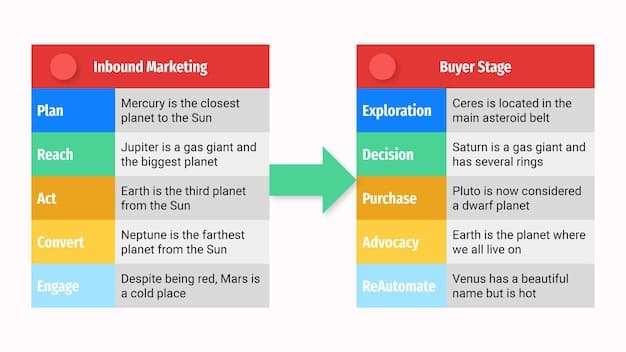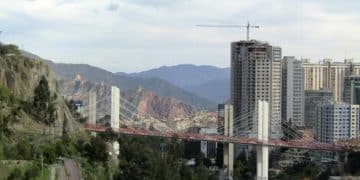Navigating Peru’s Labor Laws: A US Business Expansion Guide

Navigating Peru’s labor laws is crucial for US-based businesses expanding operations to ensure compliance, avoid legal issues, and foster positive employer-employee relationships within the Peruvian economic landscape.
Expanding your US-based business to Peru? Understanding and navigating Peru’s labor laws is essential for a smooth and successful transition. This guide provides key insights into how to navigate Peru’s labor laws when expanding your US-based business, helping you stay compliant and build a strong foundation.
Understanding the Peruvian Labor Landscape
Peru’s labor laws are distinct from those in the United States, shaped by a history of social and political factors. For US businesses, understanding these nuances is the first step toward compliance and a positive work environment.
The regulatory framework governing employment in Peru is primarily based on the Political Constitution of Peru, the Labor Code, and various sector-specific regulations. These laws regulate essential aspects such as contracts, working hours, compensation, social benefits, and termination.
Key Differences Between US and Peruvian Labor Laws
Several aspects of Peruvian labor law differ substantially from what US companies are used to. Here are a few key differences:
- Employment Contracts: In Peru, indefinite-term contracts are the norm, while fixed-term contracts require justification. This is different from the at-will employment common in many US states.
- Working Hours: The standard work week in Peru is 48 hours, typically spread over six days. Overtime is heavily regulated and must be compensated at a premium.
- Employee Benefits: Peruvian law mandates various benefits, including profit sharing, vacation bonuses, and life insurance, which may not be common or required in the US.

Understanding these differences is critical for US businesses to avoid potential labor disputes and ensure compliance with Peruvian laws.
Establishing a Legal Entity in Peru
Before hiring employees, a US business must establish a legal entity in Peru. The choice of entity will affect the labor obligations and legal responsibilities of the business.
The most common types of legal entities used by foreign companies in Peru include:
- Subsidiary: A subsidiary is a separate legal entity from the parent company, offering the most liability protection.
- Branch: A branch is an extension of the parent company and is not a separate legal entity. The parent company is directly liable for the branch’s obligations.
- Limited Liability Company (SRL): Similar to an LLC in the US, an SRL provides some liability protection to its members.
The choice of entity should be based on factors such as liability concerns, tax implications, and the level of operational control desired.
Hiring and Contracting Employees
The hiring process in Peru is governed by specific regulations, with emphasis on fair employment practices and formal contracts.
A formal employment contract is mandatory in Peru. The contract must be in writing and include crucial information such as:
- Identification of the employer and employee
- Job description and responsibilities
- Salary and payment schedule
- Working hours and location
- Start date and duration (if a fixed-term contract)
Peruvian labor law prohibits discrimination based on gender, religion, race, or other protected characteristics. This is important for US businesses to consider, as their hiring practices must comply with both US anti-discrimination laws and Peruvian labor regulations.
Types of Employment Contracts in Peru
Understanding the different types of employment contracts is crucial for hiring correctly:
- Indefinite-Term Contracts: These are standard contracts with no specified end date. They provide greater job security for employees.
- Fixed-Term Contracts: These contracts have a specified end date and are only permitted for certain temporary or project-based work.
- Part-Time Contracts: These contracts are for employees working less than the standard 48-hour work week.
It is important to justify the use of fixed-term contracts, as they are subject to greater scrutiny and misuse.
Wages, Benefits, and Compensation
Compensation in Peru includes not only the base salary but also legally mandated benefits. Understanding these components will help US businesses budget accurately and attract top talent.
The minimum wage in Peru is regularly updated, and employers must ensure that all employees are paid at least this minimum. Additionally, employers must provide:
- Vacation Bonus: One month’s salary paid before the annual vacation.
- Profit Sharing: Distribution of a percentage of the company’s profits to employees.
- Life Insurance: Mandatory life insurance for employees who have worked at the company for four years or more.

These costs must be considered when setting salary levels and planning HR budgets.
Termination of Employment
Terminating an employee in Peru is a highly regulated process. Improper termination can lead to costly legal disputes.
In Peru, employees with indefinite-term contracts can only be terminated for just cause. Just cause includes:
- Serious Misconduct: Such as theft, fraud, or violence.
- Poor Performance: Failure to meet performance standards after warnings and opportunities for improvement.
- Economic Reasons: Layoffs due to financial difficulties, which require approval from the labor authorities.
Employers must provide written notice of termination stating the reason for the dismissal. Employees have the right to challenge the termination, and if found unjust, the employer may be required to reinstate the employee or pay severance.
Severance Pay and Employee Rights
Severance pay is required in certain termination cases, particularly when the termination is without just cause or due to economic reasons. US companies must understand these obligations to avoid legal challenges.
Compliance and Dispute Resolution
Ensuring compliance with Peruvian labor laws is a continuous process. Regular audits and legal advice can help US businesses stay on track.
Labor inspections are common in Peru. The Ministry of Labor can conduct inspections to ensure compliance with labor laws related to:
- Working conditions
- Compliance with minimum wage laws
- Proper registration of employees
Non-compliance can result in penalties, fines, and legal actions.
Resolving Labor Disputes
Labor disputes can arise despite best efforts. Mediation and arbitration are common methods of resolving disputes outside of the court system.
Navigating Peru’s labor laws requires a thorough understanding of the legal framework, cultural nuances, and best practices. US businesses can effectively manage their workforce and build strong relationships with their employees by adhering to these regulations.
| Key Aspect | Brief Description |
|---|---|
| 📝 Employment Contracts | Formal, written contracts are mandatory in Peru. |
| ⏰ Working Hours | Standard is 48 hours/week, typically over six days. |
| 💰 Benefits | Include profit sharing, vacation bonus, and life insurance. |
| ⚖️ Termination | Requires just cause, and may involve severance pay. |
Frequently Asked Questions
▼
The standard work week in Peru is 48 hours, typically spread over six days. Overtime is regulated and must be compensated at a premium rate.
▼
Indefinite-term contracts are the most common. Fixed-term contracts are permitted only under specific conditions with justifiable reasons.
▼
Yes, employers must provide several benefits including profit sharing, a vacation bonus (one month’s salary), and life insurance for employees with over four years of service.
▼
Just cause includes serious misconduct (theft, violence), poor performance (after warnings), or economic reasons (layoffs with labor authority approval).
▼
Regular audits, obtaining legal advice, and staying updated with labor law changes are crucial. Proper documentation and transparent communication with employees are also helpful.
Conclusion
Expanding your business to Peru can be a rewarding venture when you’re well-prepared to navigate its labor laws. By understanding the key differences, adhering to compliance requirements, and fostering positive employee relations, US businesses can establish a successful and sustainable presence in the Peruvian market.





